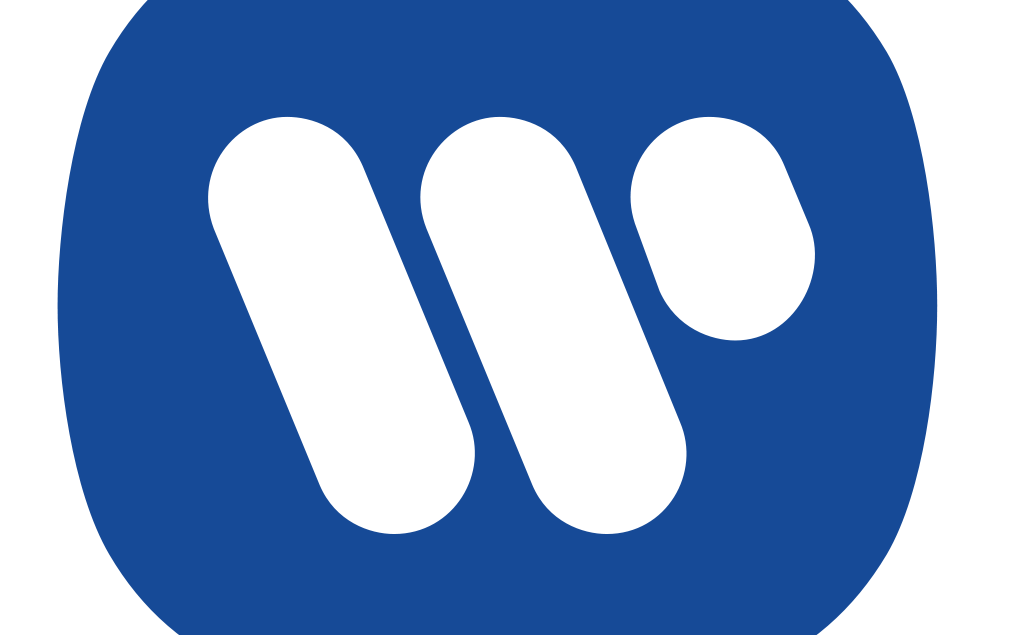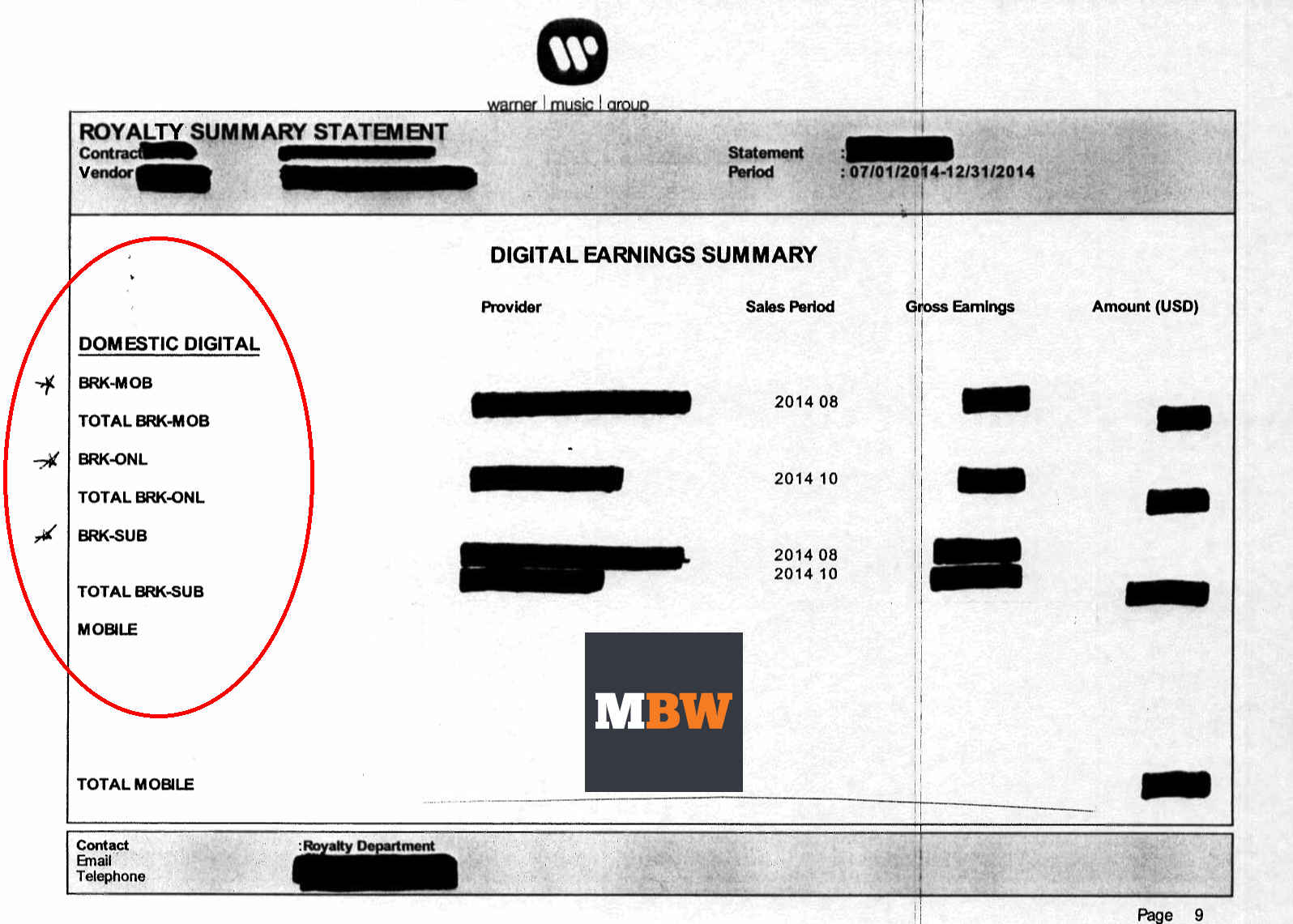
The word on the lips of the music industry’s power players this week is… breakage.
This is the unallocated money left in the pot when an advance or ‘minimum revenue guarantee’ from a streaming service to a record label exceeds royalty payments in a given period.
Many managers question whether certain labels pass any of this cash to artists… or hog it all for their bottom line.
In the case of Warner Music Group, MBW has discovered, it’s a robust ‘not guilty’.
The world’s third biggest record company is distributing at least a portion of this money to its acts.
MBW has obtained a 2014 statement from a Warner artist which clearly shows that the major is handing over – and even specifically highlighting – breakage income.

Warner tells MBW that, as a matter of policy, it’s been sharing advances (and consequential breakage) from digital services with artists since 2009, a year after Spotify launched.
“Warner Music shares all advances, minimum guarantees and ‘flat fees’ with its artists,” a Warner Music spokesperson told us.
“This policy has been in effect at Warner Music since 2009, purposely treating breakage like other digital revenue.”
Of course, that doesn’t tell us how much each artist is receiving.
But the fact the major pays anything will be welcome news to managers who have petitioned for more clarity in this notoriously opaque area of streaming licensing deals.
(MBW understands the all-important breakage share received by a Warner artist is in accordance with their royalty percentage deal – and so obviously reliant on the details of their individual contract.)
To be fair, Warner has form in this area: Last year, the boss of independent Secretly Canadian, Darius Van Arman, wrote an opinion piece for Billboard Magazine on the state of the digital market, in which he commented:
“The majors typically share breakage only when required to do so in their contracts with big artists or larger distributed labels – except for Warner Music Group, who has a more progressive stance and who sometimes volunteers to share breakage.
“Unfortunately, this practice of maximizing breakage puts a downward pressure on the value of music (i.e. in negotiations, major labels are requesting larger lump-sum payments, rather than pushing for higher royalty rates), when really the whole music industry should be working together to increase the value of music, especially as large technology companies continue their assault on copyright.”
The news of Warner’s breakage policy comes in the same week that MBW examined a statement from Sony Music following the leak of its 2011 North American contract with Spotify.
Like Warner, Sony says it shares money from breakage and advances with its artists as a matter of policy.
“Sony Music historically has shared digital breakage with its artists, and voluntarily credits breakage from all digital services to artist accounts,” it said in a statement.
“Under the Sony Music ‘Breakage Policy,’ SME shares with its recording artists all unallocated income from advances, non-recoupable payments and minimum revenue guarantees that Sony Music receives under its digital distribution deals.
“This applies to all revenue under digital catalogue distribution agreements, whether or not the guarantees, advances or ‘flat’ payments can be associated with individual master transactions.”
Out of the majors, then, that just leaves Universal.
MBW will ask the question and see what the biggest record company in existence has to say on the matter…[Music Business Worldwide]

